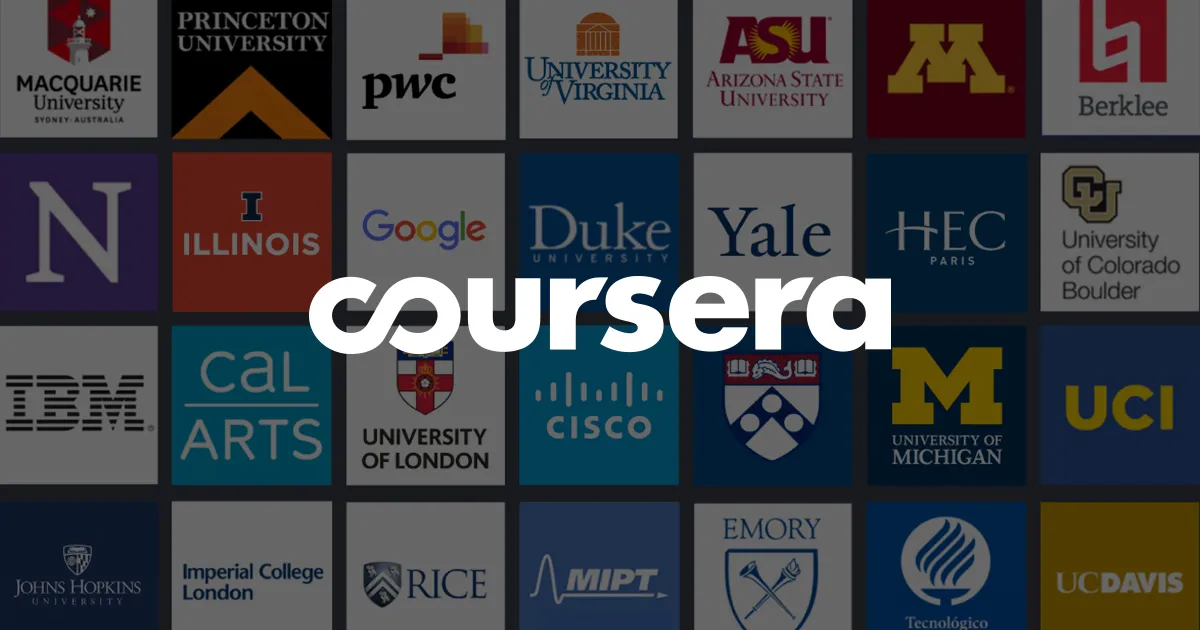
Classical papers in molecular genetics 
Molecular genetics is a field of study that focuses on the structure and function of genes. This paper explores the classical papers that have contributed to our understanding of the DNA double helix, mutations, and the reading of the DNA sequence. ▼
ADVERTISEMENT
Course Feature
![]() Cost:
Cost:
Free
![]() Provider:
Provider:
Coursera
![]() Certificate:
Certificate:
No Information
![]() Language:
Language:
English
![]() Start Date:
Start Date:
Self Paced
Course Overview
❗The content presented here is sourced directly from Coursera platform. For comprehensive course details, including enrollment information, simply click on the 'Go to class' link on our website.
Updated in [March 06th, 2023]
Learners can learn a great deal from this course on Classical Papers in Molecular Genetics. In Part 1, learners will gain an understanding of the historical context of molecular genetics and the development of the field. In Part 2, learners will explore the major theories and concepts of molecular genetics, such as gene expression, genetic regulation, and genetic engineering. Part 3 will cover the techniques used in molecular genetics, such as DNA sequencing, PCR, and cloning. Part 4 will discuss the applications of molecular genetics, such as gene therapy, genetic testing, and gene editing. Part 5 will cover the ethical implications of molecular genetics, such as the potential for misuse and the need for regulation. Finally, Part 6 will provide an overview of the current state of molecular genetics and its future development. Through this course, learners will gain a comprehensive understanding of the field of molecular genetics and its implications for society.
[Applications]
Students who have completed this course in Classical Papers in Molecular Genetics will have a better understanding of the history and development of the field. They will be able to apply this knowledge to their own research and to the development of new techniques and approaches. They will also be able to identify and evaluate the most important papers in the field and to understand the implications of their findings. Additionally, they will be able to use the knowledge gained to inform their own research and to contribute to the advancement of the field.
[Career Paths]
1. Molecular Geneticist: Molecular geneticists study the structure and function of genes at the molecular level. They use a variety of techniques to analyze and manipulate genetic material, such as DNA sequencing, gene expression analysis, and gene editing. This field is rapidly evolving, with new technologies and techniques being developed all the time.
2. Bioinformatician: Bioinformaticians use computer science and mathematics to analyze and interpret biological data. They develop algorithms and software to analyze large datasets, such as genomic sequences, and use this data to identify patterns and trends in the data. This field is becoming increasingly important as more and more data is generated from biological experiments.
3. Biochemist: Biochemists study the chemical processes that occur in living organisms. They use a variety of techniques to analyze and manipulate biological molecules, such as proteins and nucleic acids. This field is constantly evolving, with new techniques and technologies being developed all the time.
4. Genetic Counselor: Genetic counselors provide advice and support to individuals and families who are considering genetic testing or have been diagnosed with a genetic disorder. They help patients understand their genetic risks and make informed decisions about their health. This field is becoming increasingly important as more and more genetic tests become available.
[Education Paths]
1. Bachelor of Science in Molecular Genetics: This degree program provides students with a comprehensive understanding of the molecular basis of genetics and its applications in biotechnology, medicine, and other fields. Students learn about the structure and function of genes, the regulation of gene expression, and the role of genetic variation in disease. They also gain an understanding of the techniques used to study and manipulate genetic material. This degree is becoming increasingly important as the field of molecular genetics continues to grow and develop.
2. Master of Science in Molecular Genetics: This degree program provides students with a more advanced understanding of the molecular basis of genetics and its applications. Students learn about the structure and function of genes, the regulation of gene expression, and the role of genetic variation in disease. They also gain an understanding of the techniques used to study and manipulate genetic material. This degree is becoming increasingly important as the field of molecular genetics continues to grow and develop.
3. Doctor of Philosophy in Molecular Genetics: This degree program provides students with a comprehensive understanding of the molecular basis of genetics and its applications. Students learn about the structure and function of genes, the regulation of gene expression, and the role of genetic variation in disease. They also gain an understanding of the techniques used to study and manipulate genetic material. This degree is becoming increasingly important as the field of molecular genetics continues to grow and develop.
4. Master of Science in Bioinformatics: This degree program provides students with a comprehensive understanding of the use of computers and software to analyze and interpret biological data. Students learn about the structure and function of genes, the regulation of gene expression, and the role of genetic variation in disease. They also gain an understanding of the techniques used to study and manipulate genetic material. This degree is becoming increasingly important as the field of bioinformatics continues to grow and develop.
Course Syllabus
Part 1
Part 2
Part
Part 4
Part 5
Part 6
Part 7 - Quantitative analysis of transformation
Pros & Cons

Challenging but manageable sessions.

Covers science, history, relationships, and quirks.

Engaging professor and intriguing topics.

Not suitable for non-biology/medical students.

Complex material that may be difficult to understand.

Classic papers may be difficult to access.
Course Provider

Provider Coursera's Stats at AZClass
Discussion and Reviews
0.0 (Based on 0 reviews)
Explore Similar Online Courses

Getting Started with Cisco Modeling Labs (CML 2 & VIRL 2)

Security Enhanced Linux (SELinux) Fundamentals

Python for Informatics: Exploring Information

Social Network Analysis

Introduction to Systematic Review and Meta-Analysis

The Analytics Edge

DCO042 - Python For Informatics

Causal Diagrams: Draw Your Assumptions Before Your Conclusions

Whole genome sequencing of bacterial genomes - tools and applications

Biology 102: Basic Genetics

Introduction to Genetics: Certificate Program

Basic Genetics for Teachers: Professional Development
 Related Categories
Related Categories
Quiz
 Submitted Sucessfully
Submitted Sucessfully
1. What is the title of this course?
2. How many parts does this course have?
3. Which part of the course covers the perspective of molecular genetics?


Start your review of Classical papers in molecular genetics